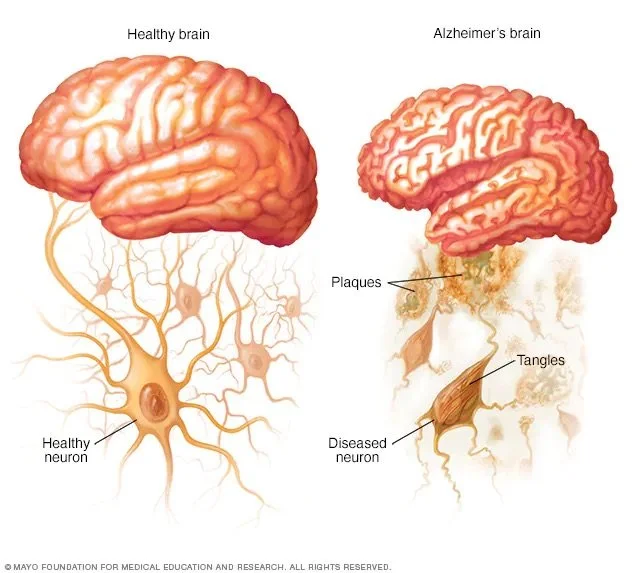Sources: Mayo Clinic, 2024. Stanford Health, 2024.
What is Alzheimer’s?
Alzheimer’s is a common brain disease that causes memory loss. While there is no cure for the disease and the causes are not fully understood, scientists have concluded that Alzheimer’s is triggered when brain proteins don’t function properly. This causes the brain’s neurons to disconnect and die. Alzheimer’s can be caused by environmental or genetic causes. Today, Alzheimer’s affects approximately 6.7 million individuals in the United States, and is a leading cause of death among the elderly population.
Symptoms:
Alzheimer’s causes memory loss and this can be long term memory loss, like forgetting your own family members, or it can be short term memory loss, like forgetting what you were about to say, or forgetting why you walked into a room. It can also lead to mood and behavioral changes and communication difficulties.
Causes:
While Alzheimer’s disease can be genetic, it’s also linked to controllable factors, such as:
Blood pressure
Diabetes
High cholesterol
Obesity
Smoking
Severe/repeated concussions.

